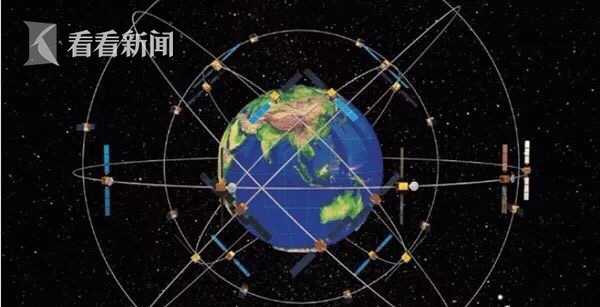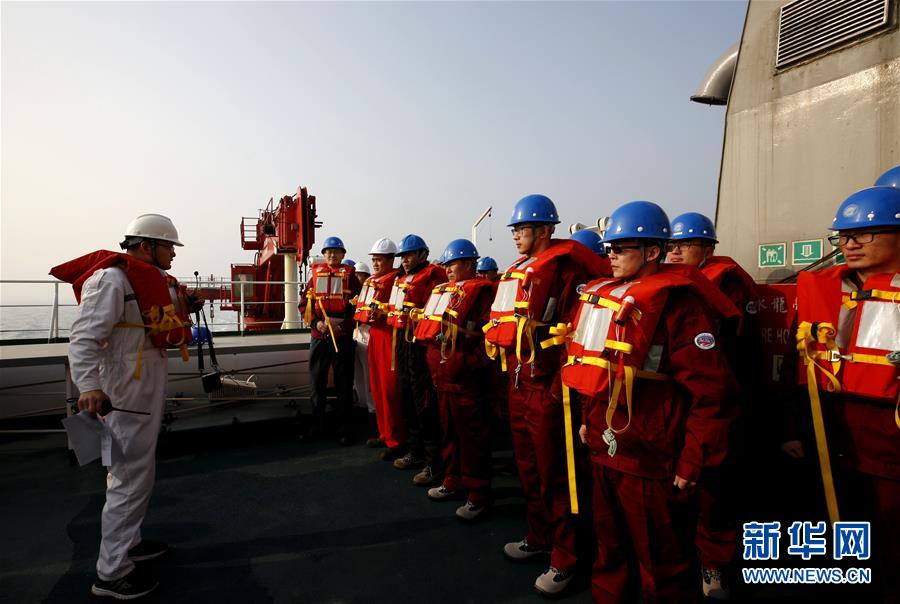
System error, also known as measurable error, is caused by some common causes in the process of analysis operation.
Random error: It is a mutually compensated error formed by a series of small random fluctuations of relevant factors in the measurement process. System error: refers to a non-random error. For example, the bias error that violates the random principle, the error caused by the registration record in the sampling, etc.
System error: also known as regular error, because its size and symbol do not change or change according to a certain law. Its main feature is that it is easy to eliminate or correct accidental error: also known as random error, because its appearance is completely random.
1. System error is caused by some imperfections of the instrument, limited measurement technology or insufficient experimental methods to ensure the correct experimental conditions and other reasons. For example, when the time of measuring the meter is stopped, the stop meter is inaccurate and slow. , the time interval of the measurement is always small. The random error is characterized by its randomness.
2. Accidental error: the error caused by the inaccuracy of the observer's reading. Features: Measurement results are large and small. System error: errors caused by inaccurate measuring instruments and imperfect experimental principles.
3. System error refers to a non-random error. For example, the bias error that violates the random principle, the error caused by the registration record in the sampling, etc. It makes the overall characteristic value too high or too low in the sample.
Finiteness: Under certain observation conditions, the absolute value of the accidental error will not exceed a certain limit. ( 2) Concentration: that is, the error with a smaller absolute value is more likely to occur than the error with a larger absolute value. ( 3) Symmetry: The probability of positive errors and negative errors with equal absolute values is the same.
Adventional error is also known as random error. The main differences from system error are as follows: different causes of occurrence. Random error: the reason for its occurrence is the influence of various unstable random factors in the analysis process, such as the instability of environmental conditions such as room temperature, relative humidity and air pressure.
The difference between system error and accidental error is that system error is inevitable.Free (but can be reduced by balancing friction and other methods), and accidental errors can be avoided by multiple measurements. System error refers to the inevitable error during the experiment. Accidental error refers to avoidable errors such as experimental operation errors.
Random error: refers to under the same conditions, due to various unpredictable accidental factors, different types of measured values of the same physical quantity are measured multiple times. Different degrees of error are called random error, also known as accidental error. System error: refers to a non-random error.
The main difference is that it has different properties, different causes and different characteristics, as follows: different properties, accidental error, accidental error generally refers to random error, which is a mutually compensated error formed by a series of small random fluctuations of relevant factors in the measurement process.
The difference between system error and accidental error is that unified error is inevitable, and accidental error can be avoided by multiple measurements. System error refers to the inevitable error during the experiment, and accidental error refers to the man-made and avoidable errors such as experimental operation errors. Error is an experimental scientific term, which refers to the degree to which the measurement results deviate from the true value.
System error: inevitable errors in experiments, such as frictional resistance, air resistance, and errors of the experiment itself, such as constant voltage when using power supply. Accidental error: measurement error, experimental operation error and other man-made and avoidable errors.
The system error is caused by some of the instrumentImprovement, limitation of measurement technology or insufficient experimental methods and failure to ensure correct experimental conditions occur. For example, when stopping the meter to measure the time, the stop table is inaccurate and slow, and the time interval of the measurement is always small. The accidental error is characterized by its randomness.
System error: Maintaining a constant or its change in the same measurement process is part of the predictable measurement error. Accidental error: the measurement error in the sequence of measured values under the same measurement conditions is uncertain, but subject to certain statistical laws.
System error is a kind of error caused by certain fixed causes in the analysis process. It is repetitive, one-way and measurable. That is, under the same conditions, it will appear repeatedly when the measurement is repeated, so that the system of the measurement results is high or low, and its numerical size also has a certain regularity.
Adventional error is also known as random error. The main differences from system error are as follows: different causes of occurrence. Random error: the reason for its occurrence is the influence of various unstable random factors in the analysis process, such as the instability of environmental conditions such as room temperature, relative humidity and air pressure.

1. The main difference is that it has different properties, different causes and different characteristics, as follows: different properties, accidental error. Accidental error generally refers to random error, which is formed by a series of small random fluctuations of relevant factors in the measurement process. The error of mutual compensation.
2. Different characteristics, system error, repeatability, one-way, measurability.
3. Random error is also known as random error. The main differences from system error are as follows: different causes Random error: the reason for its occurrence is the influence of various unstable random factors in the analysis process, such as the instability of environmental conditions such as room temperature, relative humidity and air pressure.
okx.com login-APP, download it now, new users will receive a novice gift pack.
System error, also known as measurable error, is caused by some common causes in the process of analysis operation.
Random error: It is a mutually compensated error formed by a series of small random fluctuations of relevant factors in the measurement process. System error: refers to a non-random error. For example, the bias error that violates the random principle, the error caused by the registration record in the sampling, etc.
System error: also known as regular error, because its size and symbol do not change or change according to a certain law. Its main feature is that it is easy to eliminate or correct accidental error: also known as random error, because its appearance is completely random.
1. System error is caused by some imperfections of the instrument, limited measurement technology or insufficient experimental methods to ensure the correct experimental conditions and other reasons. For example, when the time of measuring the meter is stopped, the stop meter is inaccurate and slow. , the time interval of the measurement is always small. The random error is characterized by its randomness.
2. Accidental error: the error caused by the inaccuracy of the observer's reading. Features: Measurement results are large and small. System error: errors caused by inaccurate measuring instruments and imperfect experimental principles.
3. System error refers to a non-random error. For example, the bias error that violates the random principle, the error caused by the registration record in the sampling, etc. It makes the overall characteristic value too high or too low in the sample.
Finiteness: Under certain observation conditions, the absolute value of the accidental error will not exceed a certain limit. ( 2) Concentration: that is, the error with a smaller absolute value is more likely to occur than the error with a larger absolute value. ( 3) Symmetry: The probability of positive errors and negative errors with equal absolute values is the same.
Adventional error is also known as random error. The main differences from system error are as follows: different causes of occurrence. Random error: the reason for its occurrence is the influence of various unstable random factors in the analysis process, such as the instability of environmental conditions such as room temperature, relative humidity and air pressure.
The difference between system error and accidental error is that system error is inevitable.Free (but can be reduced by balancing friction and other methods), and accidental errors can be avoided by multiple measurements. System error refers to the inevitable error during the experiment. Accidental error refers to avoidable errors such as experimental operation errors.
Random error: refers to under the same conditions, due to various unpredictable accidental factors, different types of measured values of the same physical quantity are measured multiple times. Different degrees of error are called random error, also known as accidental error. System error: refers to a non-random error.
The main difference is that it has different properties, different causes and different characteristics, as follows: different properties, accidental error, accidental error generally refers to random error, which is a mutually compensated error formed by a series of small random fluctuations of relevant factors in the measurement process.
The difference between system error and accidental error is that unified error is inevitable, and accidental error can be avoided by multiple measurements. System error refers to the inevitable error during the experiment, and accidental error refers to the man-made and avoidable errors such as experimental operation errors. Error is an experimental scientific term, which refers to the degree to which the measurement results deviate from the true value.
System error: inevitable errors in experiments, such as frictional resistance, air resistance, and errors of the experiment itself, such as constant voltage when using power supply. Accidental error: measurement error, experimental operation error and other man-made and avoidable errors.
The system error is caused by some of the instrumentImprovement, limitation of measurement technology or insufficient experimental methods and failure to ensure correct experimental conditions occur. For example, when stopping the meter to measure the time, the stop table is inaccurate and slow, and the time interval of the measurement is always small. The accidental error is characterized by its randomness.
System error: Maintaining a constant or its change in the same measurement process is part of the predictable measurement error. Accidental error: the measurement error in the sequence of measured values under the same measurement conditions is uncertain, but subject to certain statistical laws.
System error is a kind of error caused by certain fixed causes in the analysis process. It is repetitive, one-way and measurable. That is, under the same conditions, it will appear repeatedly when the measurement is repeated, so that the system of the measurement results is high or low, and its numerical size also has a certain regularity.
Adventional error is also known as random error. The main differences from system error are as follows: different causes of occurrence. Random error: the reason for its occurrence is the influence of various unstable random factors in the analysis process, such as the instability of environmental conditions such as room temperature, relative humidity and air pressure.

1. The main difference is that it has different properties, different causes and different characteristics, as follows: different properties, accidental error. Accidental error generally refers to random error, which is formed by a series of small random fluctuations of relevant factors in the measurement process. The error of mutual compensation.
2. Different characteristics, system error, repeatability, one-way, measurability.
3. Random error is also known as random error. The main differences from system error are as follows: different causes Random error: the reason for its occurrence is the influence of various unstable random factors in the analysis process, such as the instability of environmental conditions such as room temperature, relative humidity and air pressure.
Binance Download for PC Windows 10
author: 2025-01-22 23:57 OKX app
OKX app
871.31MB
Check Binance US
Binance US
976.19MB
Check Binance login
Binance login
354.25MB
Check Binance download iOS
Binance download iOS
815.74MB
Check Binance US
Binance US
681.37MB
Check okx.com login
okx.com login
529.93MB
Check Binance wallet
Binance wallet
152.62MB
Check Binance app
Binance app
795.54MB
Check OKX Wallet download
OKX Wallet download
351.19MB
Check Binance download
Binance download
756.14MB
Check Binance exchange
Binance exchange
371.35MB
Check Binance app download Play Store
Binance app download Play Store
652.55MB
Check Binance app
Binance app
388.59MB
Check OKX review
OKX review
755.64MB
Check OKX Wallet app download for Android
OKX Wallet app download for Android
655.18MB
Check Binance app download Play Store
Binance app download Play Store
418.64MB
Check Binance download
Binance download
792.46MB
Check OKX Wallet login
OKX Wallet login
419.83MB
Check Binance login App
Binance login App
728.19MB
Check OKX Wallet to exchange
OKX Wallet to exchange
327.79MB
Check OKX Wallet Sign up
OKX Wallet Sign up
399.47MB
Check OKX Wallet Sign up
OKX Wallet Sign up
421.73MB
Check Binance exchange
Binance exchange
736.71MB
Check Binance download
Binance download
224.72MB
Check Binance exchange
Binance exchange
362.45MB
Check Binance US
Binance US
813.45MB
Check Binance download
Binance download
831.42MB
Check Binance login
Binance login
391.42MB
Check OKX Wallet download
OKX Wallet download
728.36MB
Check Binance Download for PC
Binance Download for PC
389.58MB
Check OKX Wallet app
OKX Wallet app
476.46MB
Check OKX Wallet download
OKX Wallet download
937.99MB
Check Binance US
Binance US
131.23MB
Check OKX Wallet Sign up
OKX Wallet Sign up
132.28MB
Check Binance download
Binance download
468.73MB
Check OKX Wallet download
OKX Wallet download
992.82MB
Check
Scan to install
okx.com login to discover more
Netizen comments More
936 身体发肤网
2025-01-23 01:48 recommend
1438 手到拿来网
2025-01-23 01:18 recommend
1649 断齑画粥网
2025-01-23 01:04 recommend
1472 兵无常势网
2025-01-23 00:44 recommend
1368 母难之日网
2025-01-23 00:06 recommend